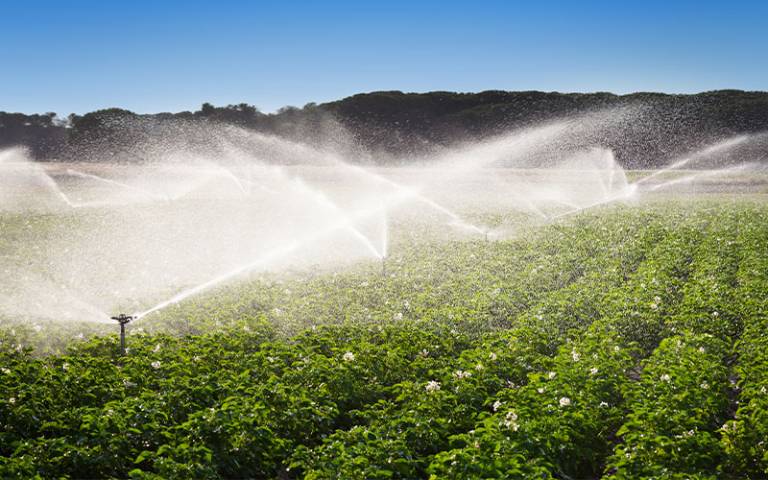
What we do
The use of all resources is increasingly recognised as being interlinked, as conceptualised through the water-energy-food nexus debate. ISR pushes the boundaries of this debate through integrating minerals and land into nexus research.
The water and food resource nexus team at UCL ISR is a growing team of academic staff, researchers and postgraduate students working at the global scale on issues related to agricultural production and its environmental impacts.
Our work
- The FOODIES project
The FOODIES project, led by Carole Dalin, is developing worldwide integrated indicators of the environmental sustainability of food production and trade, focusing on the impacts of agriculture on land, water scarcity, water quality and climate change. This is an Independent Research Fellowship project funded by the Natural Environment Research Council (NERC). Mark Jwaideh is carrying out a PhD studentship on this topic, particularly looking at water quality impacts.
- BIOTA
BIOTA is a research collaboration between UCL and other partners, led by UCL CBER and ISR. The project aims to reveal the interactions between global biodiversity change and human food security. It is funded by the Natural Environment Research Council (NERC).
In this project, we focus on evaluating and explaining the interactions between food production and biodiversity, and we will also quantify the role of trade linkages in shaping the impacts of food production on biodiversity globally.
In order to effectively progress towards the Sustainable Development Goals, it is necessary to understand the interactions between biodiversity changes and human food security. Agricultural land use and land-use change are some of the largest pressures on biodiversity. However, biodiversity changes may also impact food production as it provides important ecosystem services that support agriculture.In this project, we aim to advance biodiversity models to explain the interactions between biodiversity change and food production at a global scale.
We will also investigate how global trade in agricultural products is linked to biodiversity change, to identify where food consumption has particularly strong biodiversity impacts, potentially in remote regions of the world.
Finally, we will make future predictions to identify the pathways of development in human societies that are likely to lead to smaller or larger interactions with biodiversity.
- Impacts of Global Food Systems on Biodiversity and Water: The Vision of Two Reports and Future Aims
- Text-analysis reveals taxonomic and geographic disparities in animal pollination literature
- Effects of rarity form on species’ responses to land use
- Climate and land-use change homogenise terrestrial biodiversity, with consequences for ecosystem functioning and human well-being
- SHEFS
SHEFS is a global research programme funded by the Wellcome Trust (running from 2017 to 2021) with three country case study sites: the United Kingdom, South Africa and India. The project is a multi-partner research consortium led by the London School of Hygiene and Tropical Medicine (LSHTM) in partnership with the University of KwaZulu Natal; the University College London; the School of Oriental and African Studies (SOAS); the Centre for Food Policy at City, the University of London; the Food Foundation; the University of Aberdeen; the Royal Veterinary College; and the Centre for Chronic Disease Control in India.
SHEFS is also working with other organisations in this field, in particular the Livestock, Environment and People project (LEAP) led by the Oxford Martin School at the University of Oxford. It links to and builds upon several other Wellcome Trust-funded research projects looking at global food systems and health, led by LSHTM and SOAS, including Sustainable and Healthy Diets in India (SAHDI), Palm Oil: Sustainability, Health and Economics (POSHE), and Future Diets and Health (FUDAH).
- People
Carole Dalin
Principle Research Fellow
View Carole's profile
Send Carole an emailMonica Ortiz
Research Associate
View Monica's profile
Send Monica an emailCharlie Outhwaite
Research Associate
View Charlie's profile
Send Charlie an emailTim Newbold
Research Fellow
View Tim's profile
Send Tim an email
 Close
Close

